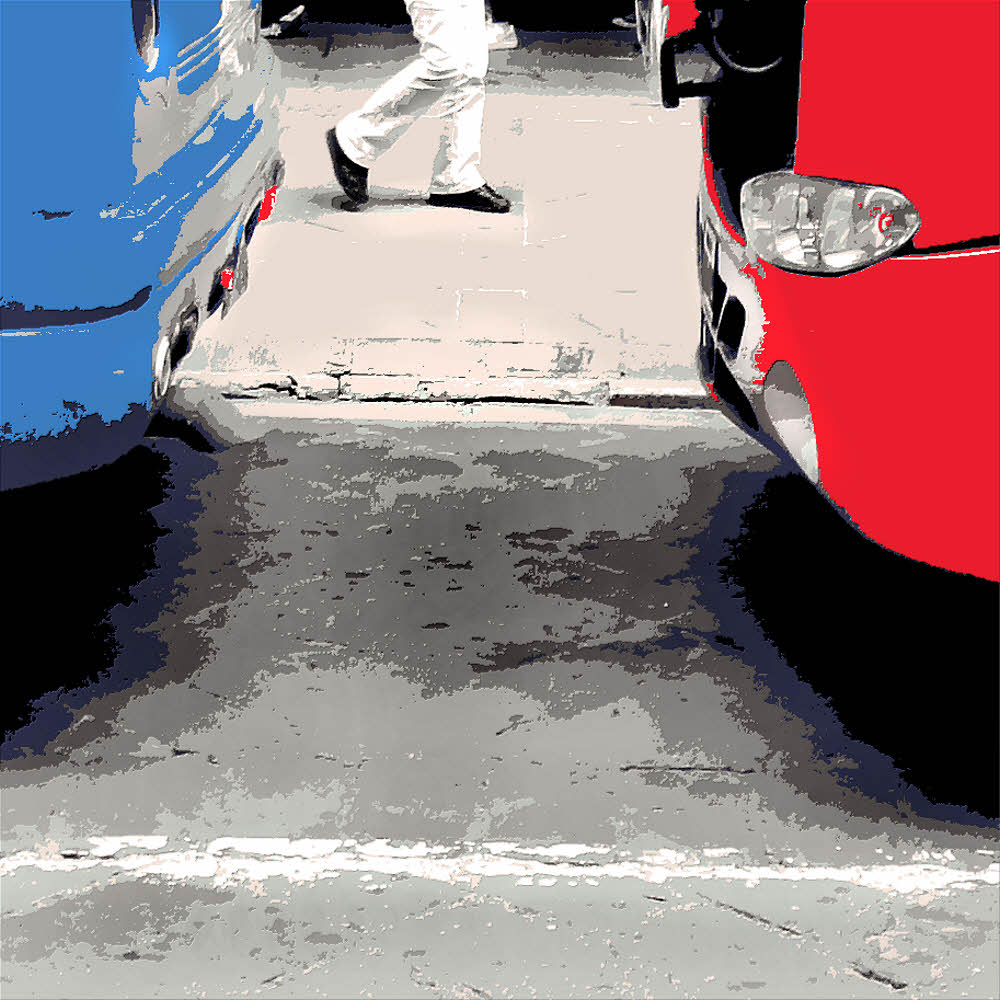Caught between wheel and fender.
A bus pass debit card cost me $1.70. To buy it, I had to visit a guarded facility. The facility is a government office, hence the guard. Steve was showing me around. He's good at that. It seems to be his job now that he's retired and living here instead of there.
He learns, he makes friends, and then helps those friends to learn what he knows, about living here, getting around, coping, finding things.
Steve spoke to the guard, who let us into the compound. Didn't I mention that? Oh. There was both a guard and a gate. The gate is locked, the guard is armed, and you have to say Please.
Steve speaks Spanish well enough to communicate. This is true. I know because the guard opened the gate and allowed us in, and he was friendly about it. People like Steve. Steve is friendly. He gets things done. And likely there are very few attacks on government facilities by retired gringos in this neighborhood, so the guard felt comfy all-around.
Inside? Things were better than you might expect. This is an old city, in a country not known for its excess wealth, so you get, on average, an improvised, patched-up experience. But this office could have been one in a renovated historic building on any of a thousand well-off college campuses. The building? Not new. The office? Yes — clean, up to date, orderly, and well lit. The staff were polite and efficient. I was done in a few minutes.
First, one of the clerks took my information, made a copy of my passport, and generated me my very own plastic ID card. I had them put $5 on it. All my personal info, and my balance are encoded in a magnetic strip. At 25 cents per ride, my $5 entitles me to 20 trips, and now that the system has transfer stations, one ride can take a person here, there, and everywhere at almost no cost.
They told me to come back after I turn 65. That's when the cost of riding is cut in half, and I will also get a photo for my pass. So, twelve-and-a-half cents per ride. Which leaves me wondering how that gets paid in cash if a person doesn't have a card, or forgets it at home.
It is completely possible that I will never know. I have a collection of things like that. Right now, and for at least a while, this question has joined the crowd inside that darkness.
After that short visit, we went riding. The buses have unwritten rules, but they are important.
Rule Number One — Be nimble, and quick, Jack. The bus is reluctant to stop and impatient to continue. If you aren't ready for it, and don't grab it, you don't ride it.
Rule Number Two — Hang on. The bus accelerates from its millisecond pause like a bull with fire on its ass. Don't have a solid grip on something? You become the entertainment.
Rule Number Three — Move back. Way back, if you intend to get off somewhere. Buses swallow passengers up front and emit them out back. Easy to remember, but problematic when a dense crowd blocks the route (all day, every day). Too bad about that missed stop. No one cares.
Rule Number Four — Signal your stop. You do this by pushing a button. The button is near the back door. If you can't get to it, then your ride goes long.
Rule Number Five — When the bus stops, get off. Now. If you can. Assuming you are near the exit, it is unblocked, and you move quick like a bunny, and that is all you need. Luck is a major player here. Nothing is guaranteed. The driver knows when everyone has gotten on, in case he cares (not that much). But those others way, way out back? Well, why should he care about them? The driver's short attention span keeps him twitching, and after a few clock ticks it takes control and the bus leaps ahead and there you are with only one foot on the pavement. Again — your fault, and you go spinning.
When I am initiated into the next level, I will certainly write more. If they catch me first.
